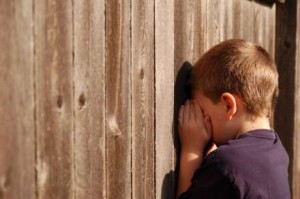“Defining Knock On Wood”
There are people who knock on wood and tap on wood or their heads after declaring that some problem will never happen to them since they’ve just spoken about the problem outloud.
The superstition is old and of pagan origin. It comes from the practice of tapping on trees to ask protection from spirits who were believed to live in them. It carried over to any place you could ‘knock on wood’ to call on the spirits living in the wood for protection from the problem you just spoke out of your mouth.
One theory even holds that the practice comes from games like hide and seek in which players that touch wood (picture a child touching a tree) are safe from capture. 
Taken from The Henry Holt Encyclopedia of Word and Phrase Origins by Robert Hendrickson
The information below was also brought to my attention by Lance Okones. These are his thoughts:
“Here’s another saying, ‘Knock on wood’. I’ve heard that it comes from Christian antiquity. After St. Helena found the Holy, Precious and Life-giving Cross that Jesus was crucified on it was kept at the Church of the Holy Sepulchure in Jerusalem. When people were sick or going through some trial they would come and pray before the Holy Cross and touch it. Their prayers would be answered and the saying ‘Knock on wood’ came from this. Fragments of the True Cross of Jesus Christ are still held at the this church in Jerusalem”.
What ways have you used this old phrase with action? How do you feel about it now?








Thank you so much for dropping by my blog and leaving a comment. I love to get feedback. Your above post was very interesting. I had never heard the origins of this saying. Wishing you all the best.
Kindest regards,
Brook
http://www.Matt5verse6.blogspot.com
Brook,
I’ve been posting once a week about the phrases and words we use.
Since we are examples to our children, seeing what those old phrases and words means helps us conciously decide what we want to ‘pass on as our legacy to them’ and what we would rather eliminate.
Glad you stopped by to comment!
I just used this phrase a few days ago. Some friends and I were talking about our kids being sick all winter and I said, “This has been our healthiest winter so far. No one has had so much as a cold.” Then I added, “Knock on wood.”
I do feel differently about it after reading this… and I had no idea the phrase had pagan roots. I guess from now on, I will say “Lord willing” instead.
(Or as my grandma says, “Lord willing and the creek don’t rise.” ;))
KristyK,
How nice to see you again! Yes, we do tend to repeat what we’ve heard growing up. It’s interesting that you bring up “Lord willing”. The best thing to do is find out what He’s willing, then believe and thank Him for it. It’s awesome to have a healthy family and something to be truly grateful to the Lord for.
KristyK
Thank you for your honesty. Sometimes people read these postings and think they’re the only ones who have been, in this case, knocking on wood. These posts are not meant to be a ‘pointing finger’, but help all of us make simple adjustments.
Have any suggestions for phrases or words you’d like to know their origins.